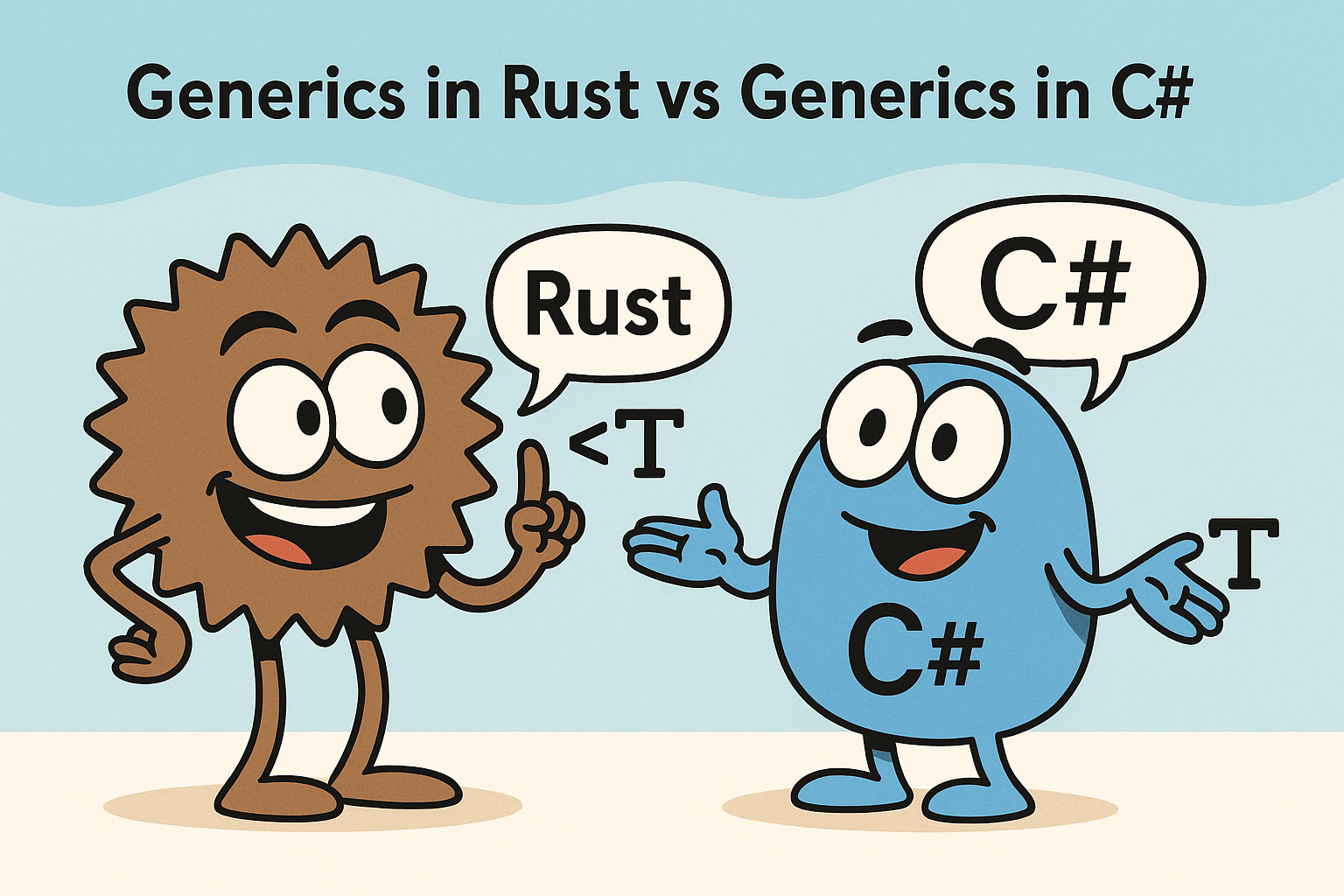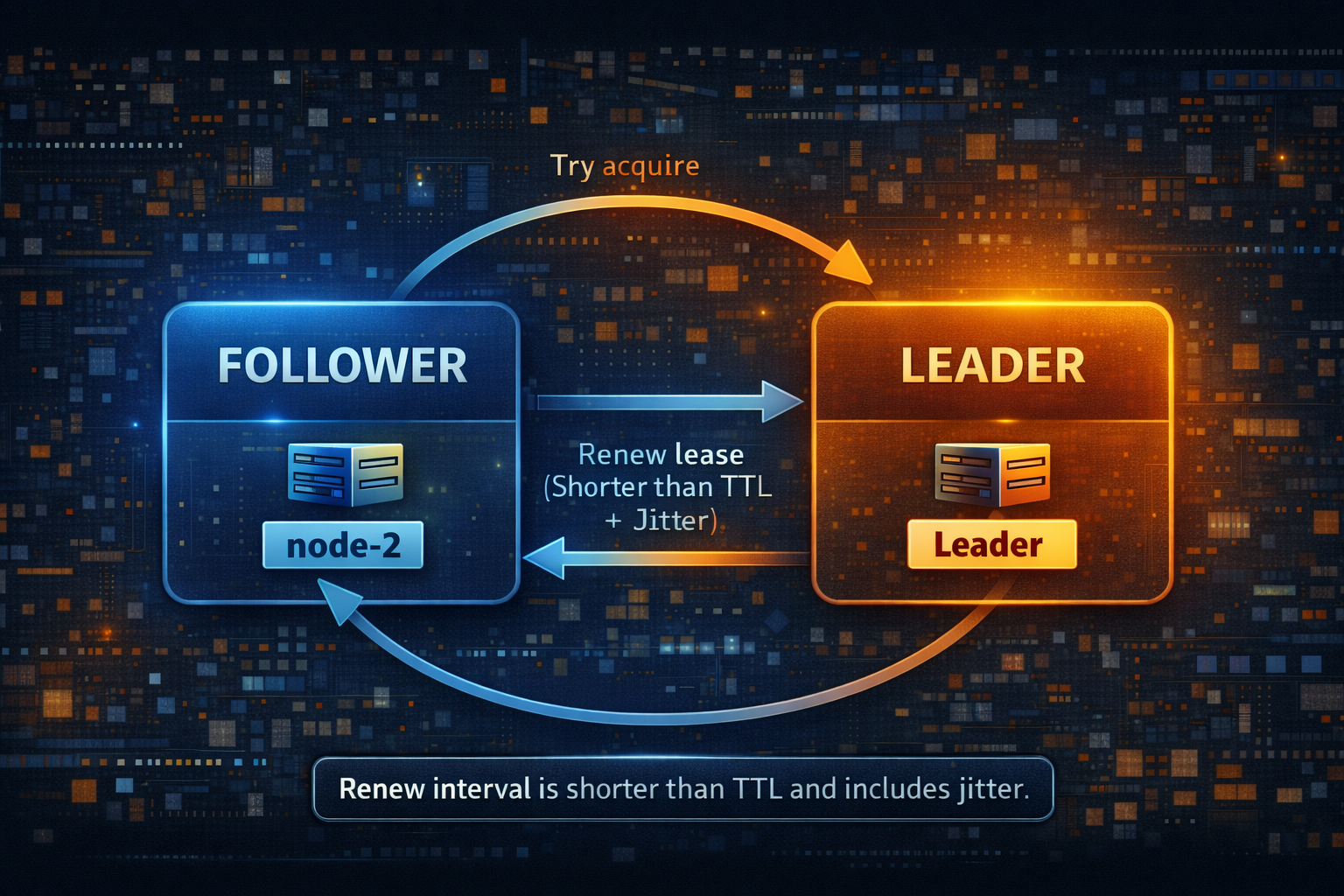
Generics in Rust vs Generics in C#
- Chris Woodruff
- May 11, 2025
- Rust
- .NET, C#, dotnet, programming, rust
- 0 Comments
Welcome to Day 31. Today, we’re diving into generics. If you are coming from C# this is probably familiar ground. You know and love List<T>, Dictionary<TKey, TValue>, and all the type-safe goodness that generics bring to your code.
Rust has generics too but with a twist. The syntax might look similar but Rust’s approach gives you some extra control and a few new things to think about.
Generic Basics: The Same but Different
Let us start with the basic syntax comparison. In C# you might write something like:
public class Box<T>
{
public T Value { get; set; }
public Box(T value)
{
Value = value;
}
}
In Rust the equivalent looks like this:
pub struct Box<T> {
value: T,
}
impl<T> Box<T> {
pub fn new(value: T) -> Self {
Box { value }
}
}
So far so good. Both languages let you define types and functions that work with any type.
Adding Constraints: Traits vs where T : Interface
In C# you often constrain generics like this:
public void Process<T>(T item) where T : IDisposable
{
item.Dispose();
}
In Rust you use trait bounds:
pub fn process<T: std::fmt::Display>(item: T) {
println!("{}", item);
}
Rust even lets you write the constraint separately with a where clause just like C#:
pub fn process<T>(item: T)
where
T: std::fmt::Display,
{
println!("{}", item);
}
The trait system in Rust is roughly equivalent to interfaces in C#. They both define shared behavior that can be enforced through generics.
Variance and Ownership
One of the subtle differences between Rust and C# generics is variance. In C# you can mark interfaces and delegates with out and in to control covariance and contravariance.
public interface IProducer<out T>
{
T Produce();
}
Rust handles variance through its ownership model and lifetime system. There is no out or in keyword. Instead variance is inferred based on how types are used and the borrow checker ensures safety.
This makes variance feel a bit more automatic but it also means you sometimes need to think about lifetimes and references when using generics in Rust.
Type Inference: Helpful in Both
Both C# and Rust provide type inference to make using generics easier. In C# you might rely on var to avoid specifying the generic type explicitly.
var box = new Box<int>(42);
In Rust the compiler often infers types for you as well:
let box = Box::new(42);
If Rust cannot infer the type it will tell you and you can specify it explicitly:
let box: Box<i32> = Box::new(42);
Compile Time Guarantees
One of Rust’s big strengths is that generic constraints are checked at compile time with no runtime overhead. Because Rust uses monomorphization it generates a concrete version of the code for each type you use. This is similar to how C++ templates work.
In C# generics use a type-erased model for reference types and JIT specialization for value types. This makes C# generics flexible but sometimes slower at runtime for certain scenarios.
Wrapping It Up
Generics in Rust feel familiar if you come from C#. The syntax lines up well and the core ideas are the same. The differences come down to how constraints are expressed with traits instead of interfaces and how Rust leans on the borrow checker and lifetimes to manage safety.
Tomorrow we will step into lifetimes and see how Rust makes sure your references never outlive their welcome. See you then!






